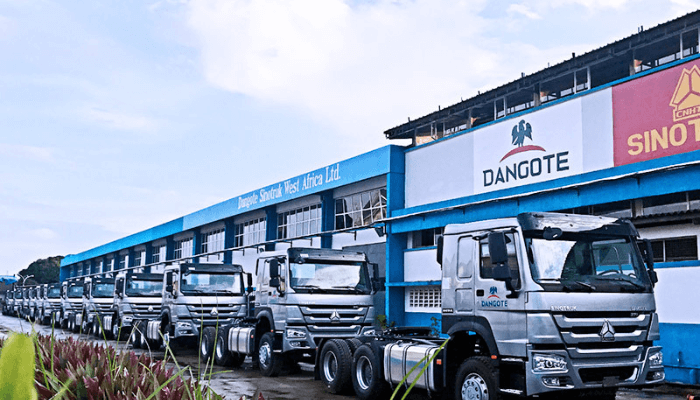Dangote’s 4,000 CNG Trucks Spark Job Loss Fears Among Tanker Drivers
With less than a month until Dangote Refinery and Petrochemical Limited rolls out 4,000 Compressed Natural Gas (CNG) trucks on August 15, 2025, for direct fuel distribution to marketers, manufacturers, telecoms, and aviation sectors, 25 oil marketers have aligned with the plan, up from an initial three.
A senior Dangote Group executive confirmed: “Yes, more marketers are now registering with us ahead of the planned free distribution of petroleum products using 4,000 trucks. Right now, the number of strategic partners has grown to 25. We started with three partners but now, it has jumped to 25 partners.”
The initiative aims to bridge Nigeria’s fuel import gap and ensure nationwide availability of Premium Motor Spirit (PMS) and diesel.
Stakeholders suggest it could lower pump prices and ease logistics, particularly in Northern Nigeria. However, tanker drivers fear significant job losses, as the direct supply model may render their diesel-powered trucks obsolete. Some drivers may be absorbed into Dangote’s workforce, but many remain concerned.
Chinedu Ukadike, National Publicity Secretary of the Independent Petroleum Marketers Association of Nigeria (IPMAN), noted: “We don’t have any option. Dangote has become the only supplier of petroleum products in Nigeria and West Africa. We don’t have any other alternative and we are ready to partner.” He highlighted economic pressures, stating: “Sometimes, we don’t even finish one truck of petroleum product in a month and the running cost is accumulating. It is stagnant and can’t be waived.” Ukadike warned of a potential monopoly, urging other refineries to compete to balance the market.
The National Association of Road Transport Owners (NARTO) President, Yusuf Othman, confirmed ongoing stakeholder discussions but declined further comment, saying: “I am not going to say anything about it because we are in discussion.”
The Natural Oil and Gas Suppliers Association of Nigeria (NOGASA) scheduled a National Executive Council meeting for July 31, 2025, in Abuja to address the plan’s implications, as announced by Secretary-General Tunde David.
The Petroleum Products Retail Outlets Owners Association of Nigeria (PETROAN) cautioned against a “Greek gift,” with President Billy-Gillis Harry warning: “I think Nigerians need to be careful about accepting a ‘Greek gift’… So there is no anticipation that when everybody is drummed out of the business by these kinds of gifts, we wouldn’t get back to the same position where we would start looking to buy petroleum products for N2,500 per litre.” He cited past monopolies in flour, sugar, and cement industries, expressing concerns over long-term price hikes.



